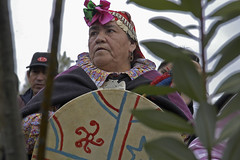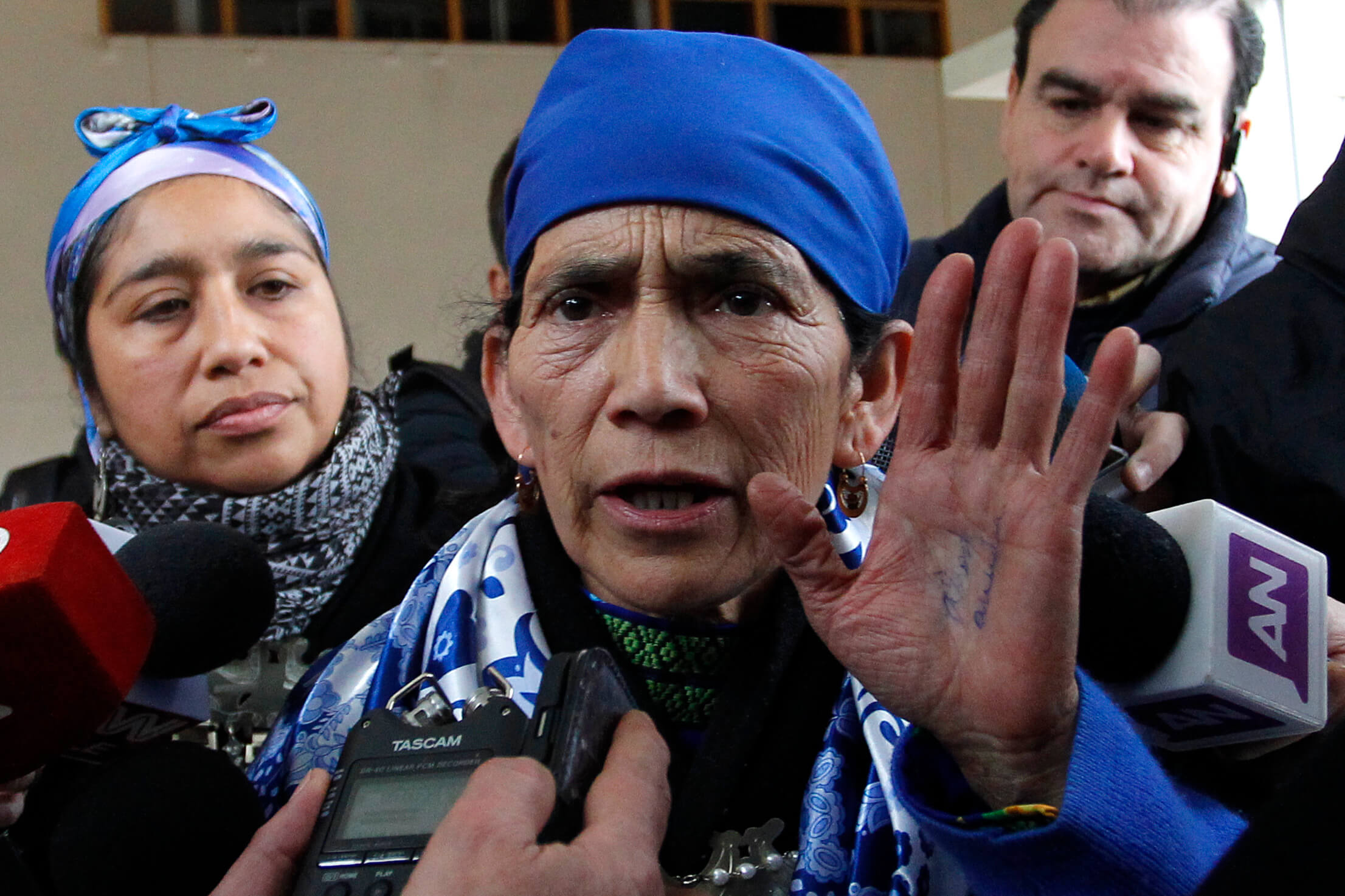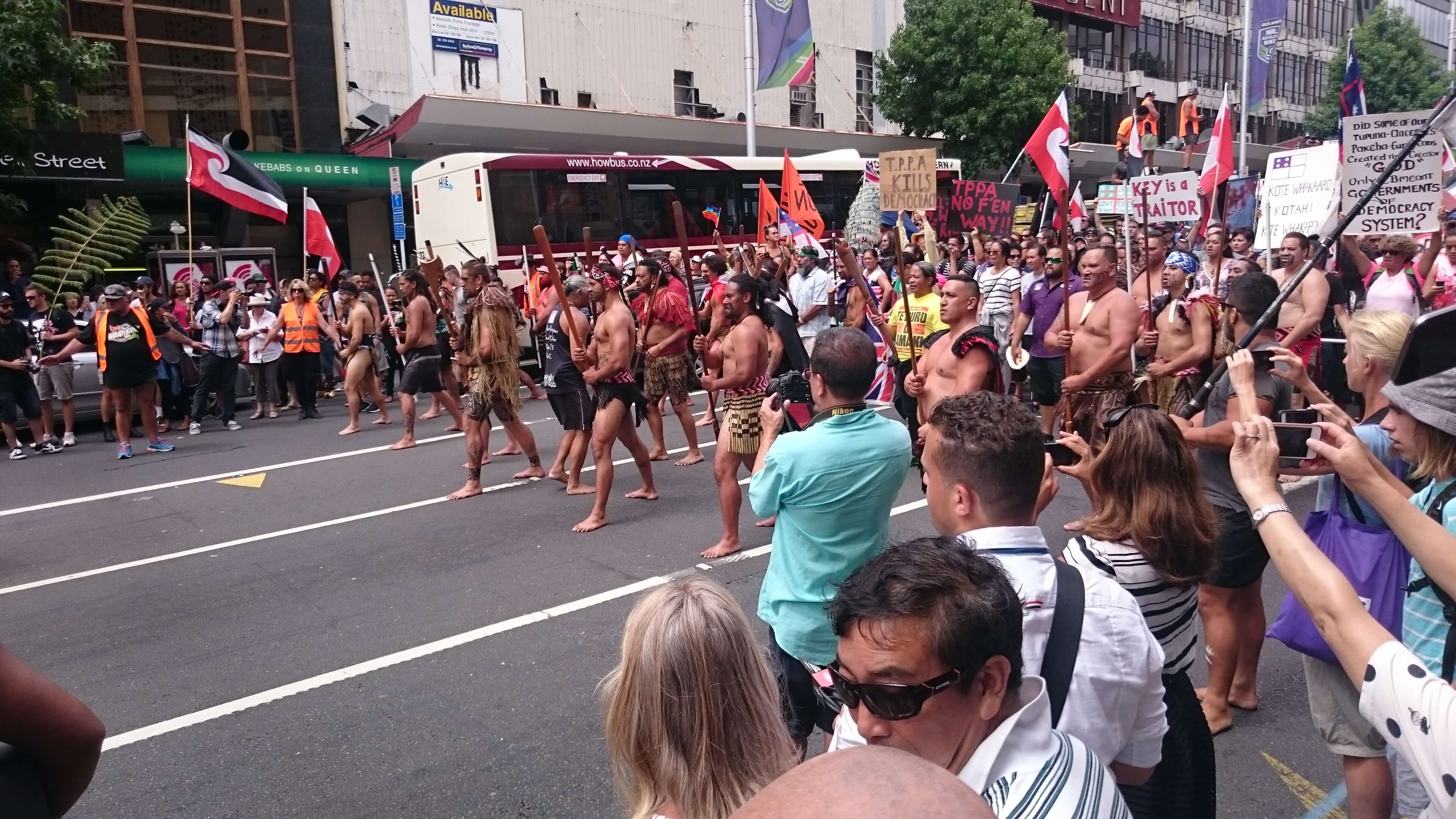 The Mapuche people are the original inhabitants of a vast territory in what is now Chile and Argentina. In Chile the Mapuche live mainly in the provinces of Bio-Bio, Arauco, Malleco, Cautin, Valdivia, Osorno, Llanquihue and Chiloe. As a result of population growth and hence overcrowding in indigenous reservations, the majority of Mapuche people now live in the large urban centres of Santiago, Concepción, Valparaíso, Temuco and Valdivia. In Argentina the Mapuche live in the provinces of Buenos Aires, La Pampa, Neuquén, Rio Negro and Chubut. The Mapuche population in Argentina has grown to around two hundred and fifty thousand. In the Chilean population census of 1992, carried out by the National Institute of Statistics, approximately one million people surveyed declared themselves to be Mapuche [1]
The Mapuche people are the original inhabitants of a vast territory in what is now Chile and Argentina. In Chile the Mapuche live mainly in the provinces of Bio-Bio, Arauco, Malleco, Cautin, Valdivia, Osorno, Llanquihue and Chiloe. As a result of population growth and hence overcrowding in indigenous reservations, the majority of Mapuche people now live in the large urban centres of Santiago, Concepción, Valparaíso, Temuco and Valdivia. In Argentina the Mapuche live in the provinces of Buenos Aires, La Pampa, Neuquén, Rio Negro and Chubut. The Mapuche population in Argentina has grown to around two hundred and fifty thousand. In the Chilean population census of 1992, carried out by the National Institute of Statistics, approximately one million people surveyed declared themselves to be Mapuche [1]
Historically the Mapuche, whose name means “Earth People”, were known to the Spanish as the Araucanians (araucanos); However, this term is now mostly considered to be pejorative.[2]
In 1641, the Spanish signed the Treaty of Quillin which defined the Mapuche traditional territory. However, with the defeat of the Spanish in 1810, the original treaties of 1641 were abrogated. The new Republics of Chile and Argentina instigated their own treaties which led to the gradual takeover of the Mapuche territory.
Just 50 years later, between 1860-1885, the Chilean and Argentinian armies invaded the Mapuche territory in a massive dispossession recorded in Chile as the “Pacification of the Araucanian”, and in Argentina as the “Campaign of the Desert”. Around 100,000 Mapuche were massacred as a result of the joint military campaign. [3]
Despite the historical subjugation (which is, in several respects, ongoing) the Mapuche continue to speak their own language (Mapu-dugun), and practice their own customs and traditions.
However, the Mapuche are still under a considerable amount of pressure, especially in Chile, where the needs and rights of the indigenous peoples are continually ignored.




